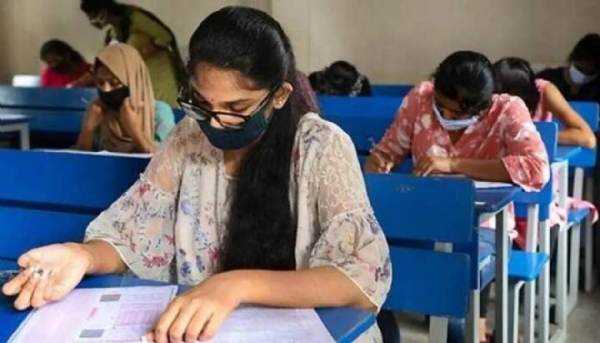Common University Entrance Test - A View From a Student of Philosophy of Social Sciences
Though MCQs format probably aims at standardizing the Common University Entrance Test, it ignores many aspects of the nature of social sciences ( humanities) and languages.
Total Views |
Dr. Shantishree Pandit, the VC of JNU, voiced her opinion on 'fact-centric /objective' or MCQs being the format of the CUET. Today Shri Avijit Pathak a retired JNU professor too wrote on the issue, in Indian Express. Of course both have raised valid points. Though this format probably aims at standardizing the test, it ignores many aspects of the nature of social sciences ( humanities) and languages. It has been pointed out that such tests fall short of assessing cognitive and analytical ability.

It is essential to know why is it so. All know that social sciences study some aspects of social reality. Thus they in a way, study human behavior, their relation with others, and with society. ( This is not a definition, it is a description.) To a great extent, natural sciences differ from social sciences as nature is the focus of study. The natural phenomena are studied to discover whether there is a pattern.
If so, can some consequences be predicted? And as a result of the inquiry, some laws of nature may be formed to understand and predict future consequences. The natural sciences have many Laws which are known to all. There are some exceptions too. Of course, this is a very simple description, not a definition, as this is not the purpose of the write-up.
Analyzing social phenomena is a very difficult exercise as it involves human beings. Very rarely does one finds many people responding similarly in a situation at the same time or at different times and places in a similar situation. Everyone is a product of the society one belongs to. Innumerable factors influence our personality, character, way of thinking, responding, taking decisions, and understanding of social reality.
This complex process can hardly be explained, understood, and encapsulated in the form of a law or even a Theory. Forming a hypothesis is also a very challenging task where the exercise of the inquiry may start from. There are not many Laws in social sciences but there are a few theories that are presented. It takes a long time to get the theories supported by presenting corresponding evidence.
The study of any such sciences needs all to develop the ability to analyze, to grasp abstract concepts, and their inter-relations. This is in a way creative thinking where one attempts to see beyond the empirical data and comprehend some patterns if any. And even such breakthroughs are very rare to come across.
Different people may understand the situation from different perspectives. And all such efforts are valid. Theories cannot be labelled as false easily. They were more or less practicable.
Social experiments take a long to reach the concluding phase. Even designing a suitable experiment is a tough job.
Evaluating analytical skills or judging linguistic abilities cannot depend on the store of information one may have. A different format is to be designed. The problem is a reliable way to identify such abilities. Who was present at a particular event or who said it or chronological order has a very limited role to play. The system needs to transcend the empirical inquiry and judge the faculty of rational and analytical thinking.


